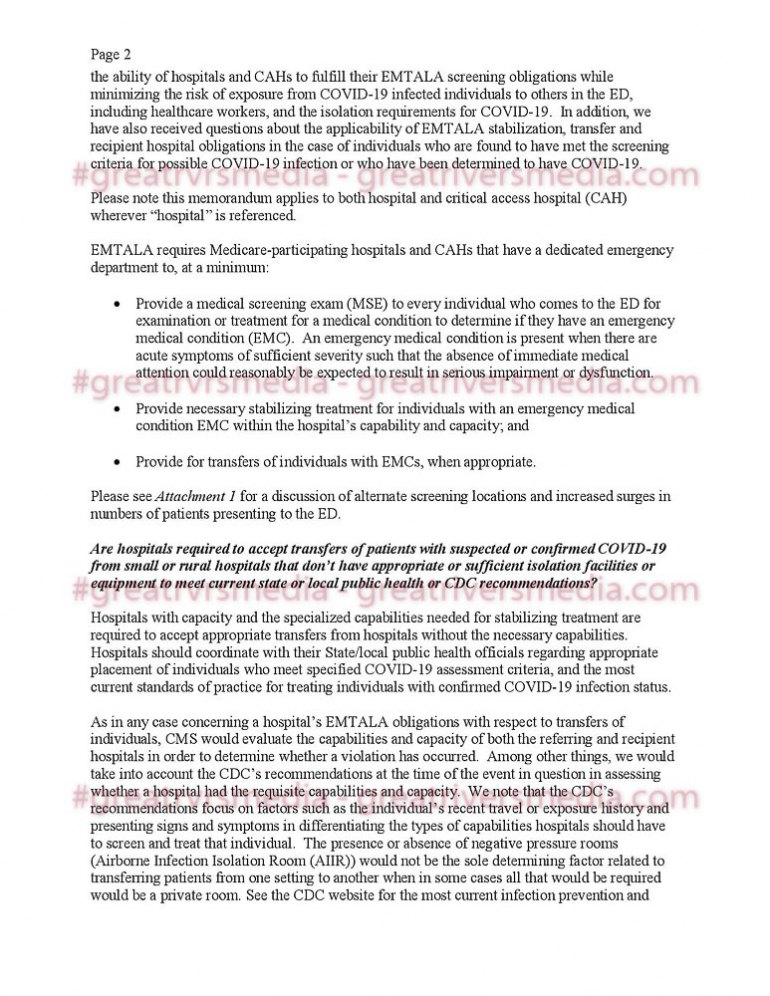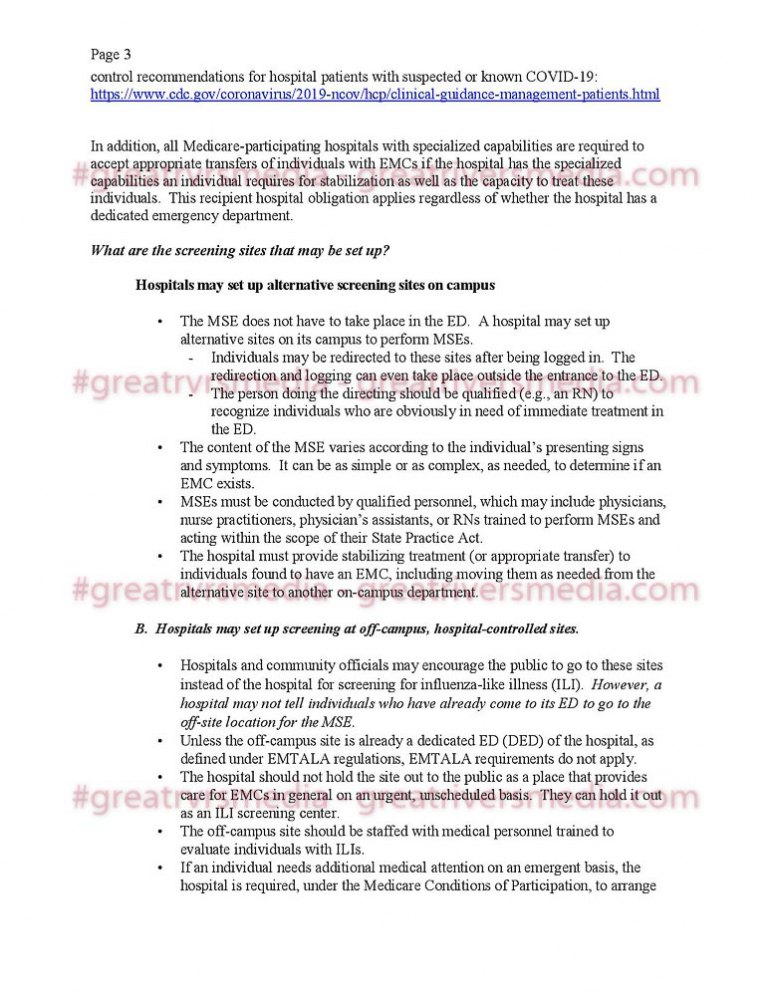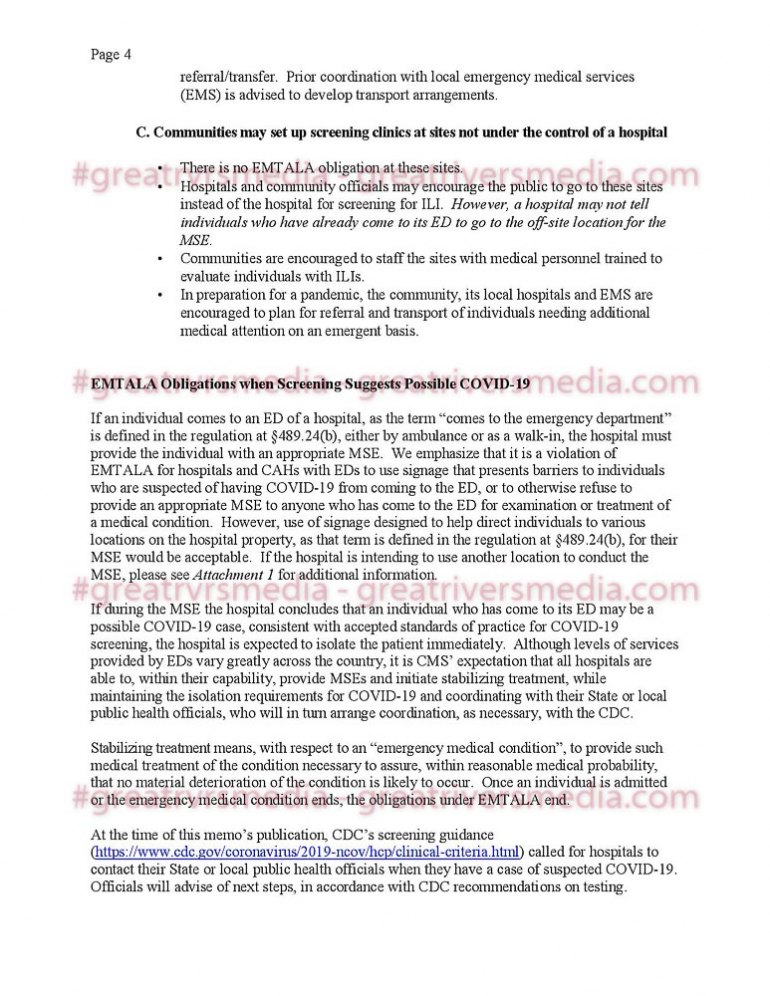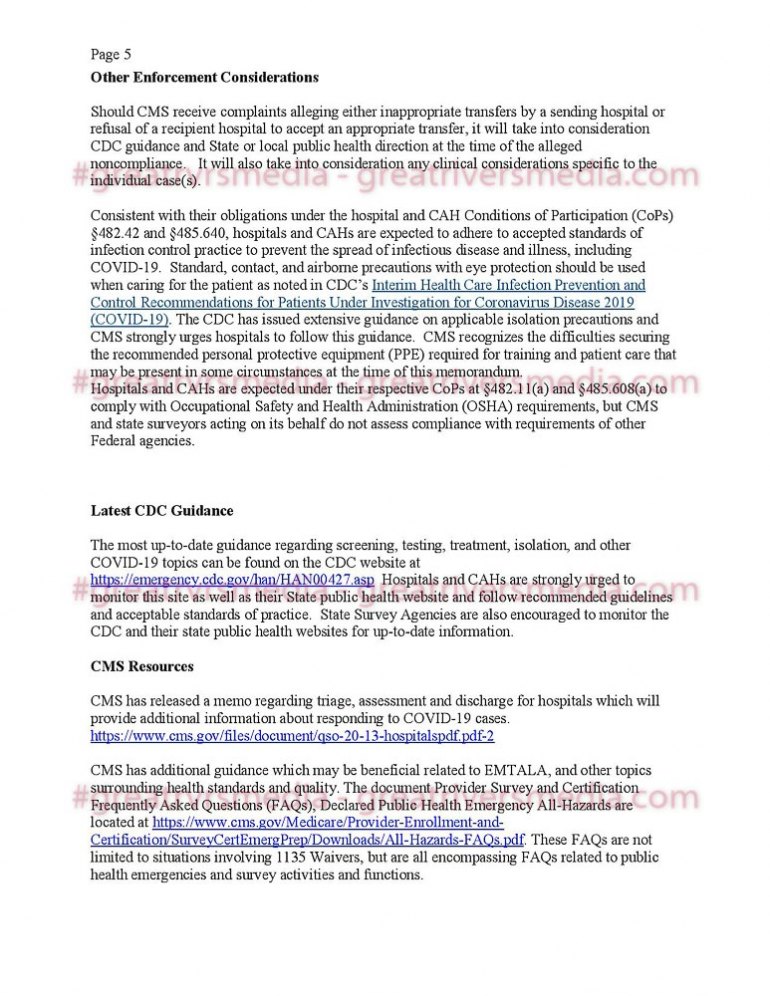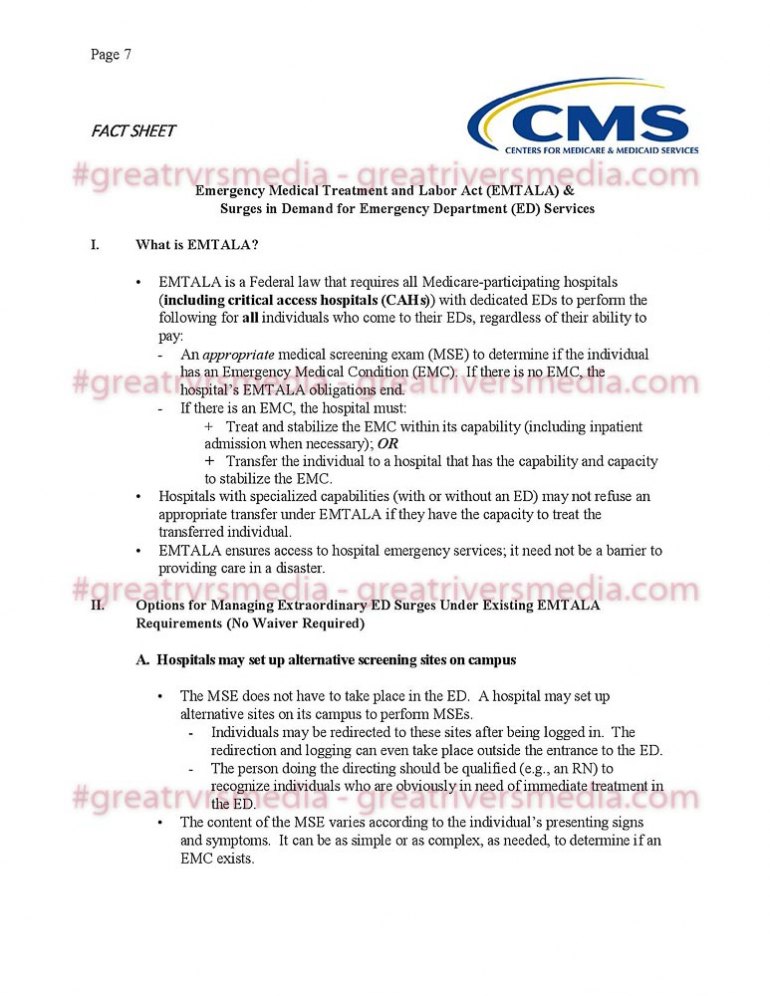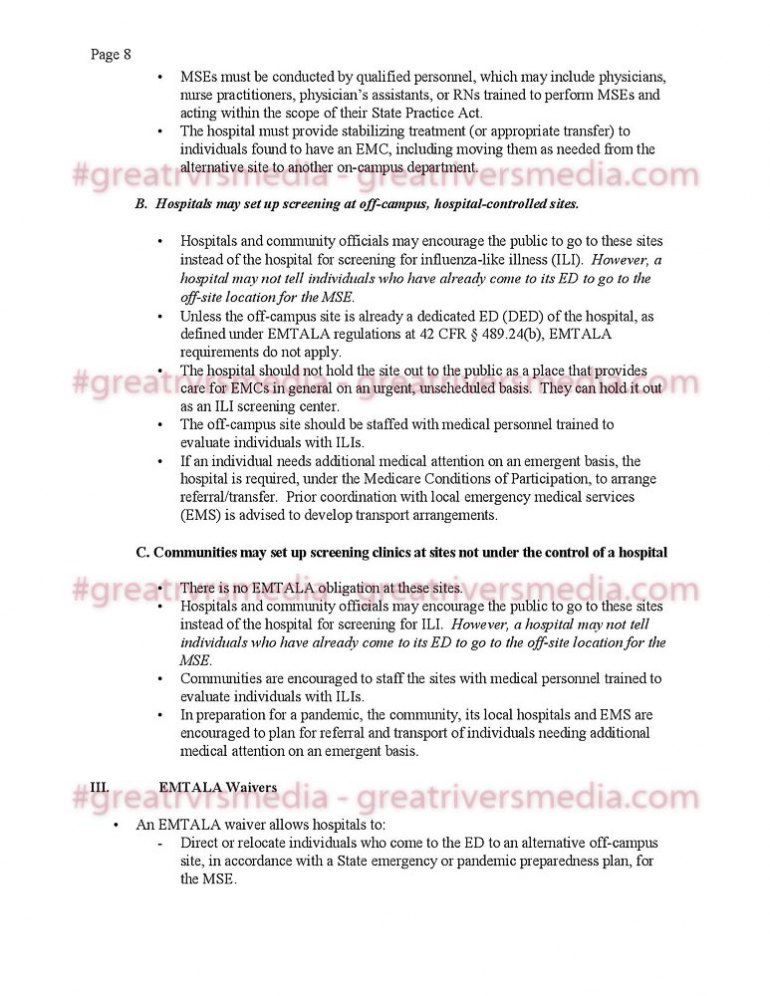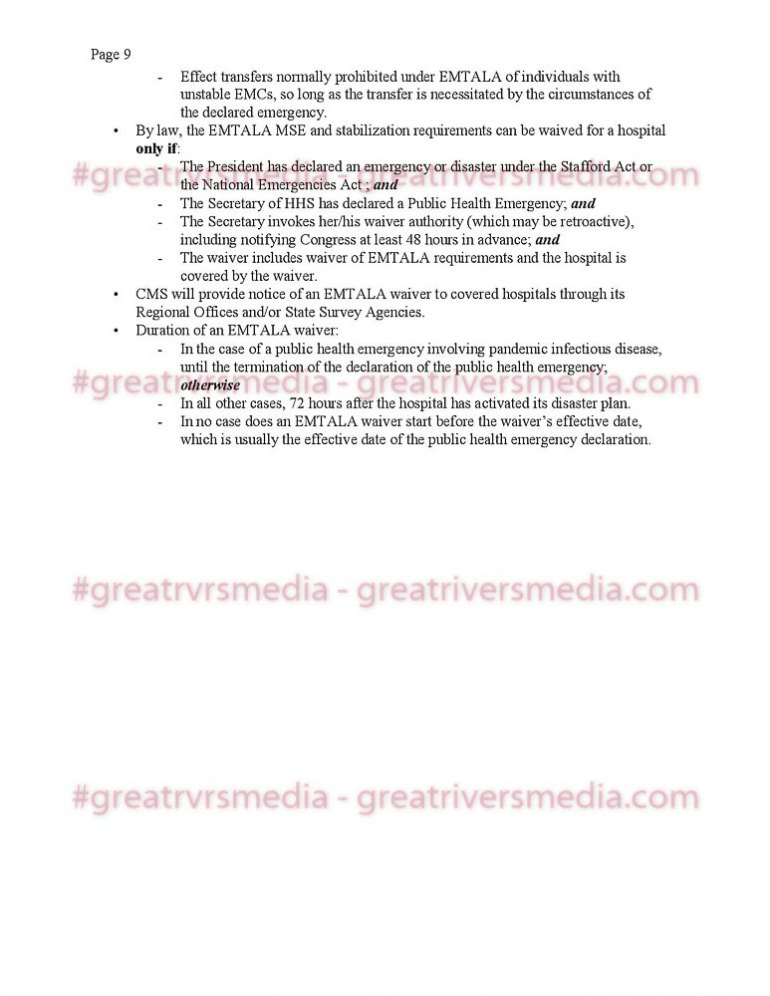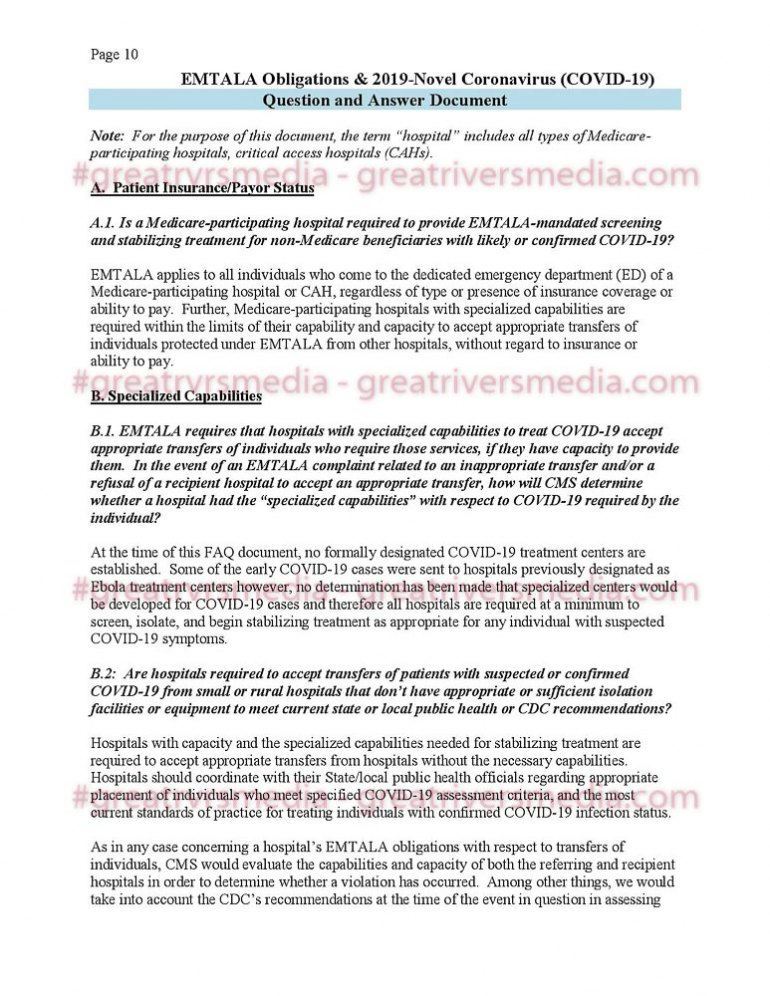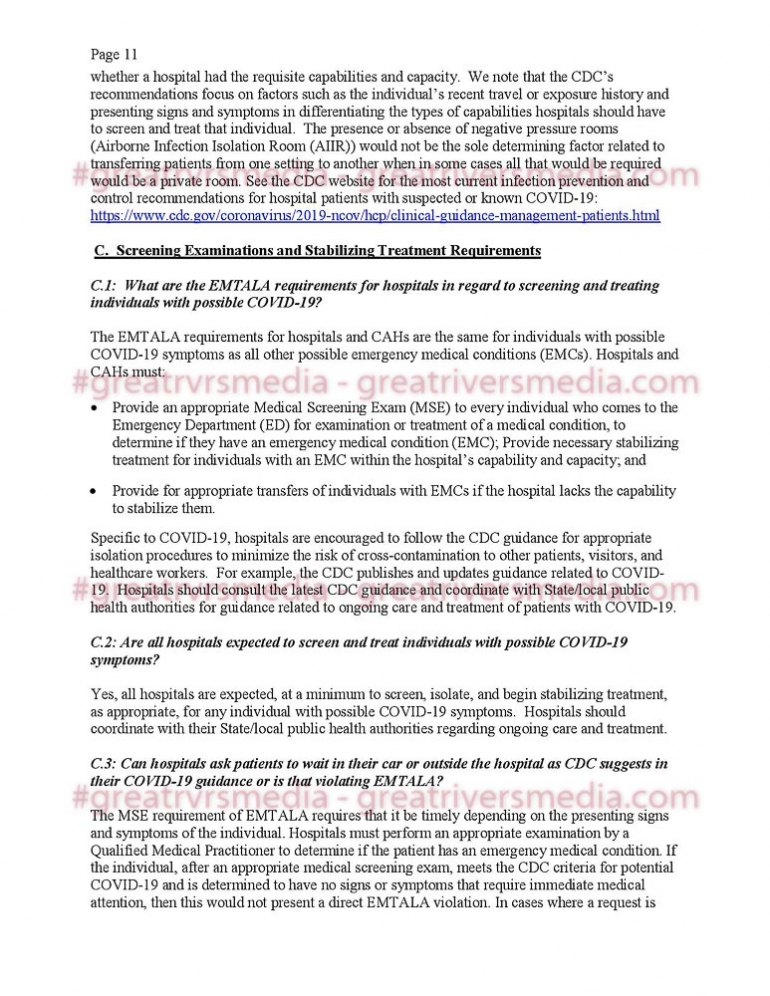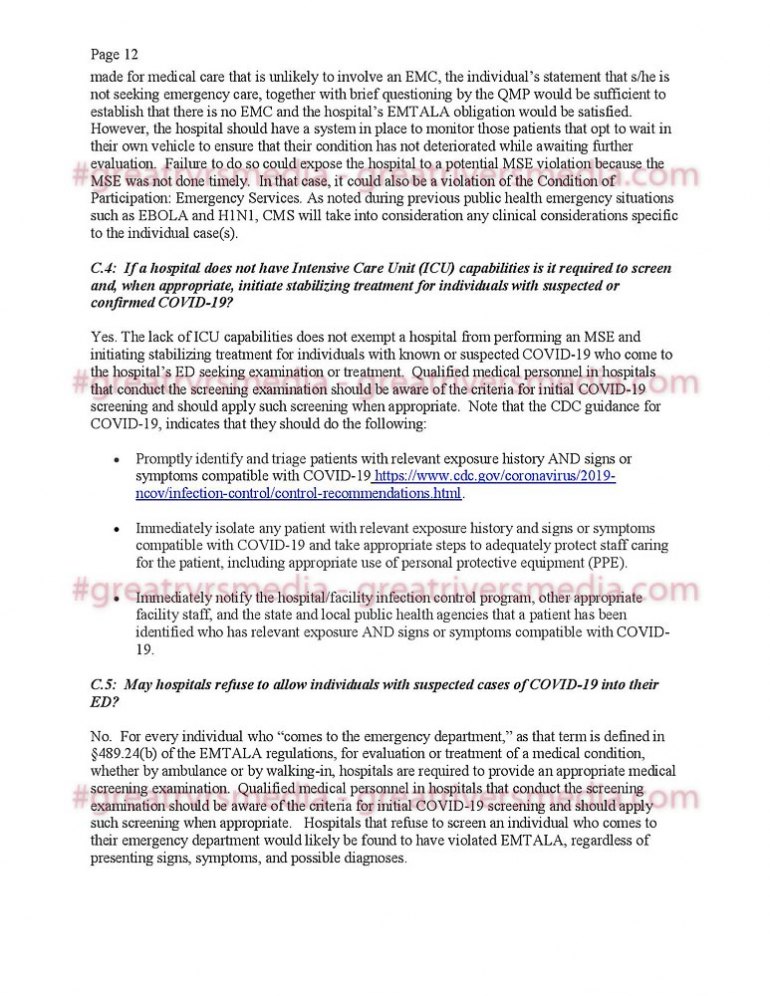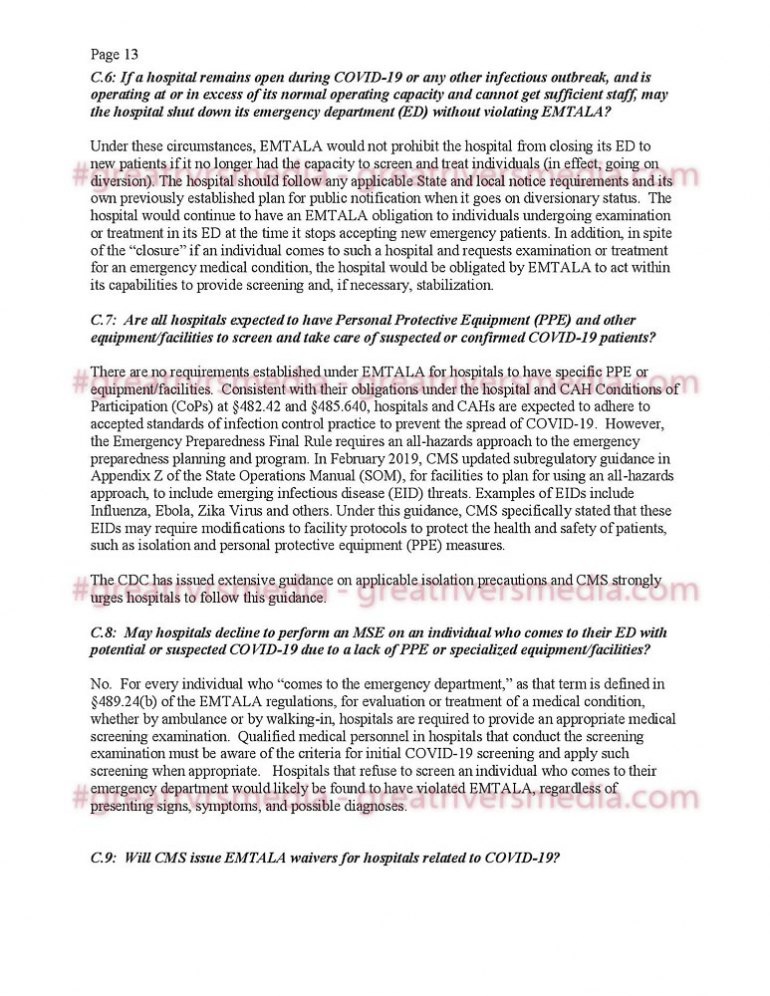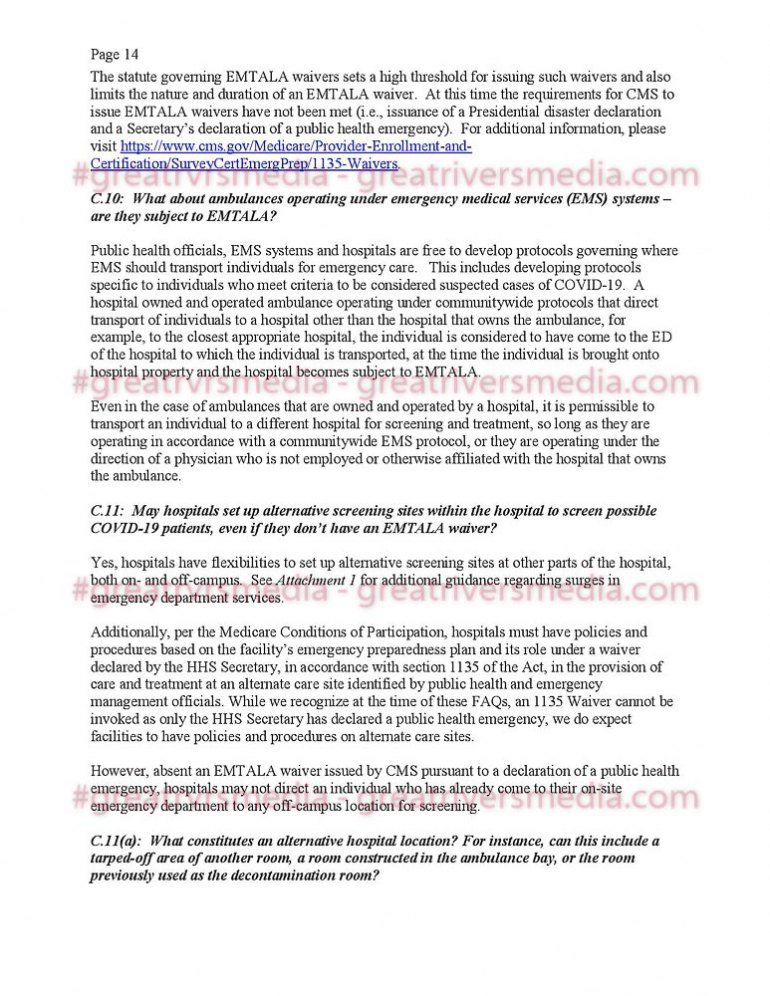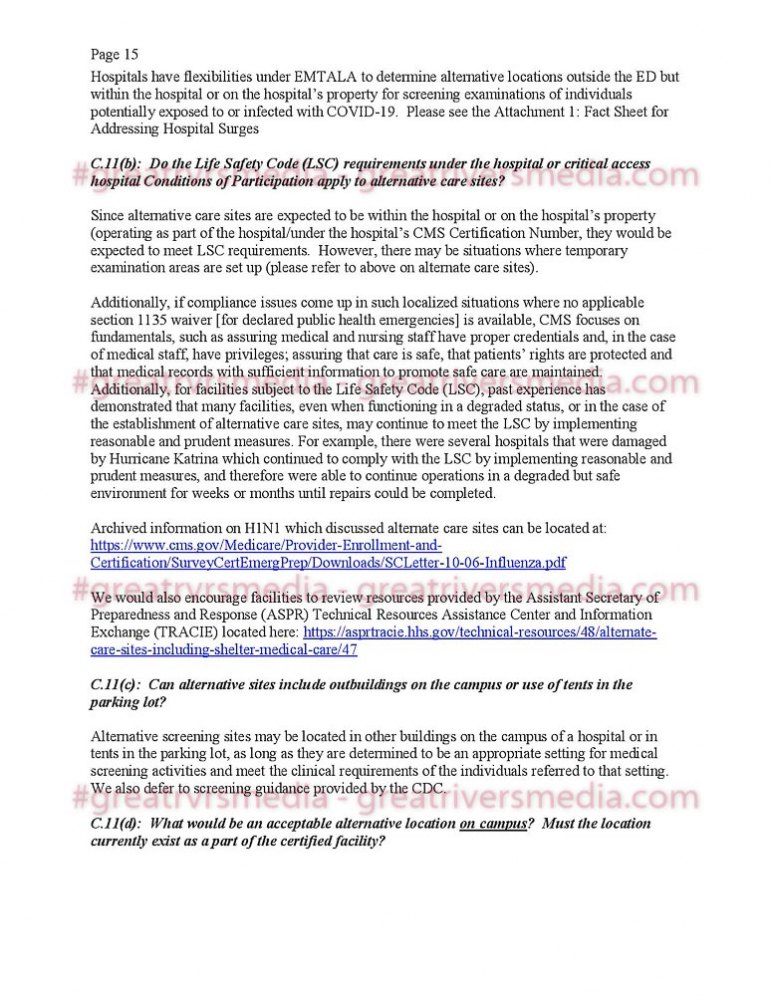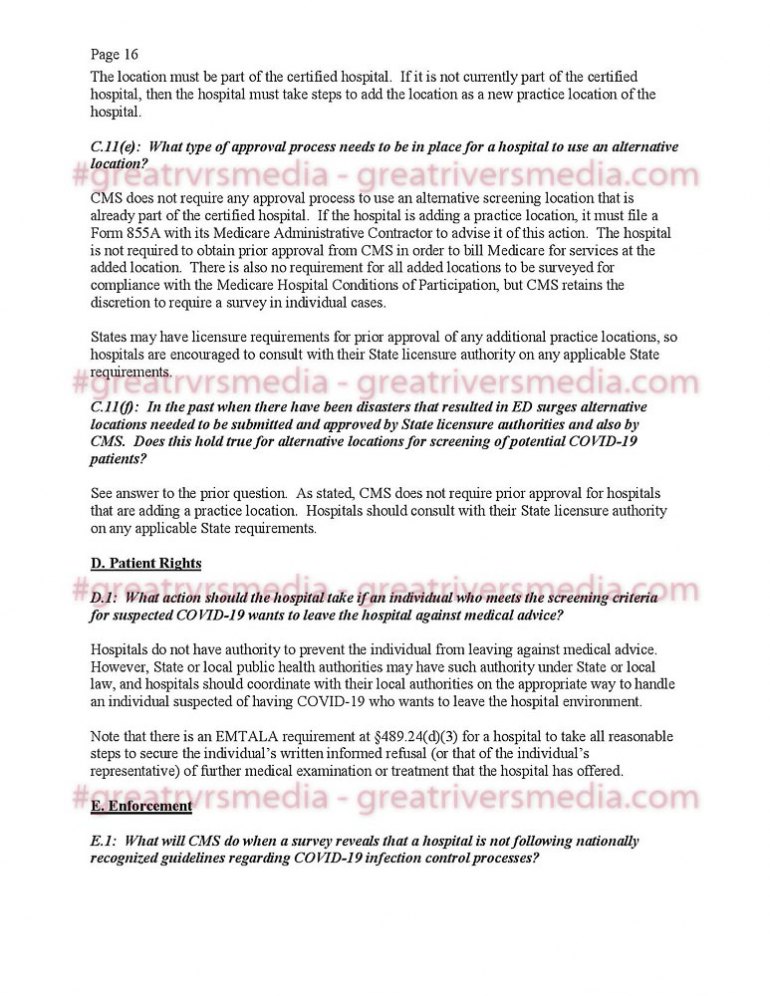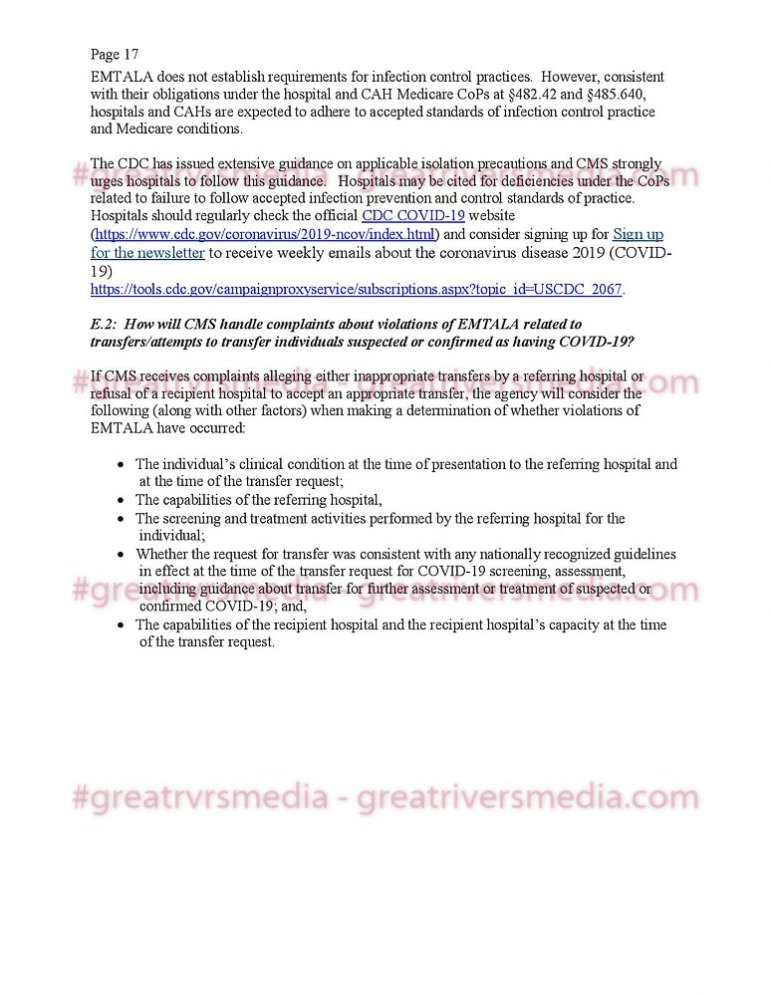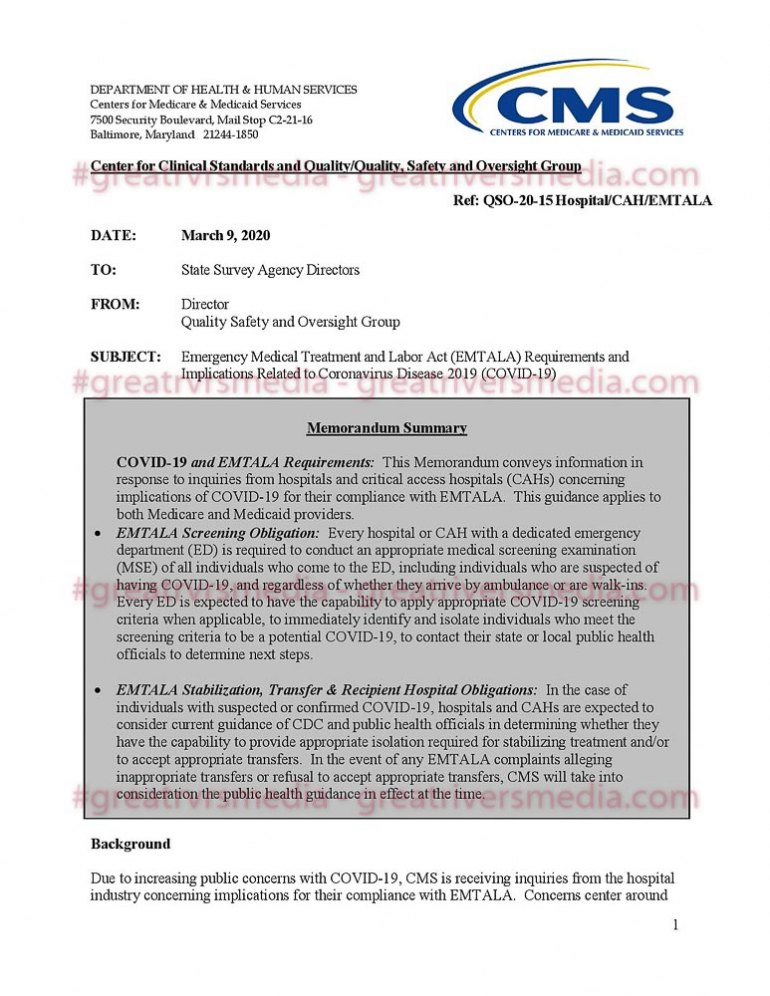WASHINGTON D.C. - In an effort to educate the general public, greatriversmedia.com will be providing important information that relates to the current COVID-19 (coronavirus) pandemic. Very few people remember outbreaks of polio that panicked communities for years until an effective vaccine was created in the 1950's. There are people you might know that lost a family member or shows some lasting effect from the disease today. No one living today has recollection of the flu pandemic that raged for three years in the early part of the last century. Today we face a viral threat that is considerably more contagious than the common flu and is magnitudes more deadly. While the virus is of the same family as the common cold, it is not in any way similar to it. This new threat has an incubation period of up to 27 days. It can kill within a matter of days once the symptoms become severe. There is little that can be done other than to support the ill patient with whatever means are available. For a large number of the extremely ill, that requires a ventilator. Local hospitals are not equipped to handle the number of cases that will present if drastic actions are not taken to slow the spread of the virus.
Healthcare providers are well aware of what may happen if the virus continues to spread quickly. Hospitals and healthcare providers nationwide have been requesting guidance from the federal government on how to best manage the tsunami of cases they know will hit them quickly if drastic measures are not taken. Guidance was offered in a letter dated March 9th, the Department of Health and Human Services. It is important to understand exactly what this guidance refers to. The letter uses and references EMTALA. EMTALA is a reference to The Emergency Medical Treatment and Active Labor Act passed in 1986 as part of the Consolidated Omnibus Budget Reconciliation Act (COBRA). The law is generally thought of as the one that requires hospital Emergency Departments that accept payments from Medicare to provide an appropriate medical screening examination (MSE) to anyone seeking treatment for a medical condition, regardless of citizenship, legal status, or ability to pay. Participating hospitals cannot transfer or discharge patients needing emergency treatment except with the informed consent or stabilization of the patient or when their condition requires transfer to a hospital better equipped to administer the treatment. The new guidance and national emergency status we are in may well change these rules substantially if the virus infections spike dramatically. The key phrase in the guidance overview is "In the event of any EMTALA complaints alleging inappropriate transfers or refusal to accept appropriate transfers, CMS will take into consideration the public health guidance in effect at the time."
The guidance letter was in response to intense healthcare provider inquiry as to best handle what they believe can be an extreme situation. Test materials are currently scarce and many that need testing cannot be tested still. It may well be that with no way to effectively test, people may be sent home if no beds are available locally or regionally that could offer care. As numbers of cases climb, the guidance from the CDC and public health providers will likely change. The letter is reproduced here in its entirety for you to read so you can be better informed. While this letter regards Medicare and Medicaid providers, it will apply to anyone that requests care at a hospital emergency room.
Be safe. Do not believe this is like the common cold or even a bad flu. It is not. If you spread it to others, you could be responsible for an extremely ill person or even the death of another. This is serious business.
